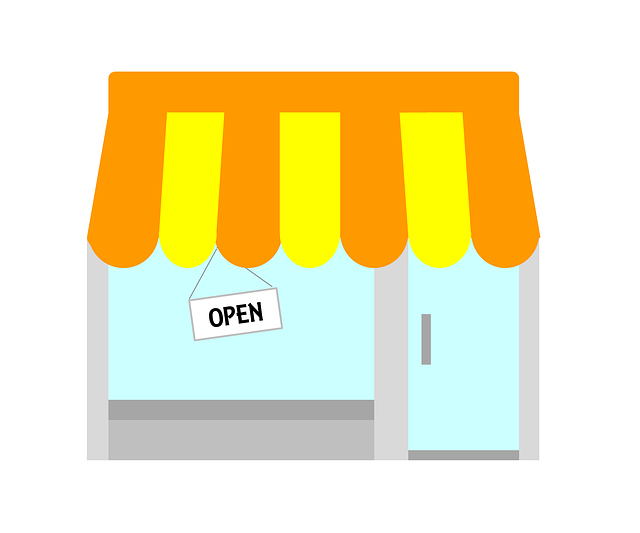Small businesses lacking dedicated IT teams rely on cost-effective yet impactful solutions for their online presence, making local web designers crucial. These professionals offer tailored designs understanding market dynamics and target audiences, providing customized layouts, user-friendly interfaces, and SEO strategies. Hiring local web designers offers significant advantages, fostering community collaboration and sustained support. For entrepreneurs establishing a strong online presence, assessing portfolios and case studies is key to finding the ideal designer. Custom web design enhances brand identity, fosters client engagement, and drives conversions – essential for growth in the digital marketplace. Local designers understand small business needs, offering tailored packages and cost-effective maintenance plans. Outsourcing saves time and allows focus on core activities while leveraging expert design skills. Case studies demonstrate the transformative power of local web design, leading to increased sales and engagement. Effective collaboration through communication and project management tools ensures stunning, functional websites tailored to unique business requirements, while data-driven insights help measure success and guide future strategies.
In today’s digital era, a robust online presence is crucial for small businesses to thrive. Local web designers play a pivotal role in helping entrepreneurs achieve this by understanding their unique needs and crafting tailored solutions. This article explores the benefits of hiring local talent for small business web design, from cost-effective strategies to efficient collaboration tools. We’ll also delve into successful case studies, measuring impact, and tips for identifying the right designer for your venture.
Understanding the Unique Needs of Small Businesses

Small businesses face unique challenges when it comes to their online presence, and this is where local web designers play a pivotal role. Unlike larger corporations with dedicated IT teams, startups and small enterprises often rely on cost-effective solutions that deliver maximum impact. A tailored web design approach is essential to address these specific needs. Local designers understand the market dynamics and can create websites that resonate with the target audience, reflecting the brand’s personality and values.
By partnering with local web designers, entrepreneurs can benefit from customized layouts, user-friendly interfaces, and search engine optimization (SEO) strategies tailored for small business web design. These professionals are adept at balancing aesthetics, functionality, and affordability, ensuring that the online space aligns with the business goals and reaches the desired customers effectively.
Benefits of Hiring Local Web Designers

Hiring local web designers brings a host of advantages for entrepreneurs, especially those running small businesses. One of the key benefits is the ability to build a strong, unique online presence tailored specifically to their target audience and brand identity. Local designers often have a deep understanding of the regional market, allowing them to create websites that resonate with local customers and effectively communicate the business’s value proposition.
Additionally, engaging with local web design professionals fosters a sense of community and collaboration. These designers are invested in the success of their neighbors and can offer ongoing support and maintenance, ensuring the website stays up-to-date and relevant. This long-term partnership can be invaluable for small businesses looking to thrive in a competitive digital landscape, where a well-designed and consistently managed website is essential for attracting and retaining customers.
Finding the Right Talent: Tips for Entrepreneurs

Finding the right web designer is a crucial step for entrepreneurs looking to establish an online presence, especially in today’s digital landscape where having a strong online platform is essential for small business success. With numerous designers and agencies vying for clients, entrepreneurs can feel overwhelmed when it comes to making a choice.
To navigate this process effectively, consider seeking referrals from peers or industry associations, which can lead you to talented professionals. Additionally, reviewing portfolios and case studies of previous projects is vital to understanding the designer’s aesthetic and technical skills, particularly in small business web design. Look for someone who not only creates visually appealing websites but also has a proven track record of developing user-friendly, responsive designs that cater to your target audience.
Building a Strong Online Presence with Custom Design

In today’s digital era, having a strong online presence is crucial for any small business aiming to thrive and connect with its target audience. Custom web design plays a pivotal role in achieving this goal. A local web designer can create a unique, visually appealing, and user-friendly website tailored to the specific needs of entrepreneurs. By employing creative design elements and leveraging industry best practices, these designers ensure that small businesses stand out in a competitive online landscape.
A custom-designed website becomes an effective marketing tool, enhancing brand identity and fostering client engagement. It allows entrepreneurs to showcase their products or services, share valuable content, and build trust with potential customers. With a well-crafted online presence, small businesses can increase their visibility, attract more visitors, and ultimately drive conversions, all of which are essential for sustainable growth in the digital marketplace.
Cost-Effective Solutions for Small Budgets

Many entrepreneurs, especially those with limited budgets, often wonder if hiring a local web designer for their small business is feasible. The good news is that there are numerous cost-effective solutions available to make professional web design accessible. Local web designers understand the unique needs of small businesses and can offer tailored packages without breaking the bank.
These professionals can work within specific budget constraints, providing essential services such as basic website creation, search engine optimization (SEO) integration, and responsive design to ensure your online presence is both attractive and functional. Many also offer ongoing maintenance plans at affordable rates, ensuring your website stays up-to-date and secure. This approach allows small businesses to compete effectively in the digital space without overspending.
Time-Saving Strategies: Outsourcing vs In-House Design

Outsourcing small business web design can be a strategic move for entrepreneurs, offering numerous time-saving benefits. By enlisting the help of local web designers, businesses can leverage their expertise to create professional, high-quality websites quickly and efficiently. This is particularly advantageous for startups or solo entrepreneurs who may not have the internal resources or specialized skills required for in-house design. Outsourcing allows them to focus on core business activities while a dedicated team handles the technical aspects of web development.
In-house design, while providing more direct control, can be time-consuming and resource-intensive. It involves recruiting and training designers, sourcing tools and software, and managing project timelines. In contrast, outsourcing allows for flexible engagement, where businesses can scale their design needs based on project requirements. This agility is invaluable for small businesses with fluctuating demands, ensuring they only pay for the resources they require during each stage of their growth journey.
Case Studies: Successful Local Web Design Projects

When it comes to showcasing the capabilities of local web designers, case studies offer tangible proof of their expertise in crafting successful small business web designs. These real-world examples demonstrate how strategic design choices can elevate a brand’s online presence and drive engagement from the target audience. For instance, consider a local café owner who partnered with a seasoned designer to create a website that encapsulates the cozy atmosphere of their establishment through warm color palettes, inviting imagery, and seamless navigation. The result? A surge in online orders and a significant increase in foot traffic.
Another compelling case study involves a boutique clothing store whose previous site struggled to convert visitors into customers. By collaborating with a local web designer, they redesigned the site with an emphasis on high-quality visuals, intuitive product filtering, and a mobile-first approach. This new design not only improved the user experience but also led to a 30% rise in online sales within the first quarter, solidifying the importance of a well-executed small business web design strategy.
Tools and Resources for Efficient Collaboration

In the realm of small business web design, efficient collaboration between entrepreneurs and designers is key to successful project outcomes. Tools like Slack or Microsoft Teams enable seamless communication, allowing real-time updates and immediate feedback. These platforms facilitate file sharing, including design mockups, coding snippets, and project documents, ensuring everyone works with the latest versions.
Additionally, project management software such as Asana or Trello helps organize tasks, set deadlines, and track progress. Such tools promote transparency and accountability, enabling entrepreneurs to stay involved in the design process without overwhelming their schedules. This collaborative approach ensures that the final product aligns closely with the client’s vision, resulting in a stunning and functional website tailored to their unique business needs.
Measuring Success: Evaluating the Impact of Your Website

Measuring success is an integral part of any business strategy, and for entrepreneurs with a newly designed website, it’s no different. The impact of a small business web design goes beyond aesthetics; it drives conversions, fosters engagement, and ultimately influences growth. By setting clear goals and tracking key metrics, entrepreneurs can evaluate the effectiveness of their online presence.
Website analytics tools provide valuable insights into user behavior, helping to understand visitor demographics, page views, bounce rates, and conversion paths. For instance, a decrease in bounce rate could indicate that the website design effectively communicates value, while increased time spent on site suggests that content is engaging and relevant to the target audience. These data-driven perspectives empower entrepreneurs to make informed decisions about future marketing strategies and content updates, ensuring their online investment continues to yield positive results.
